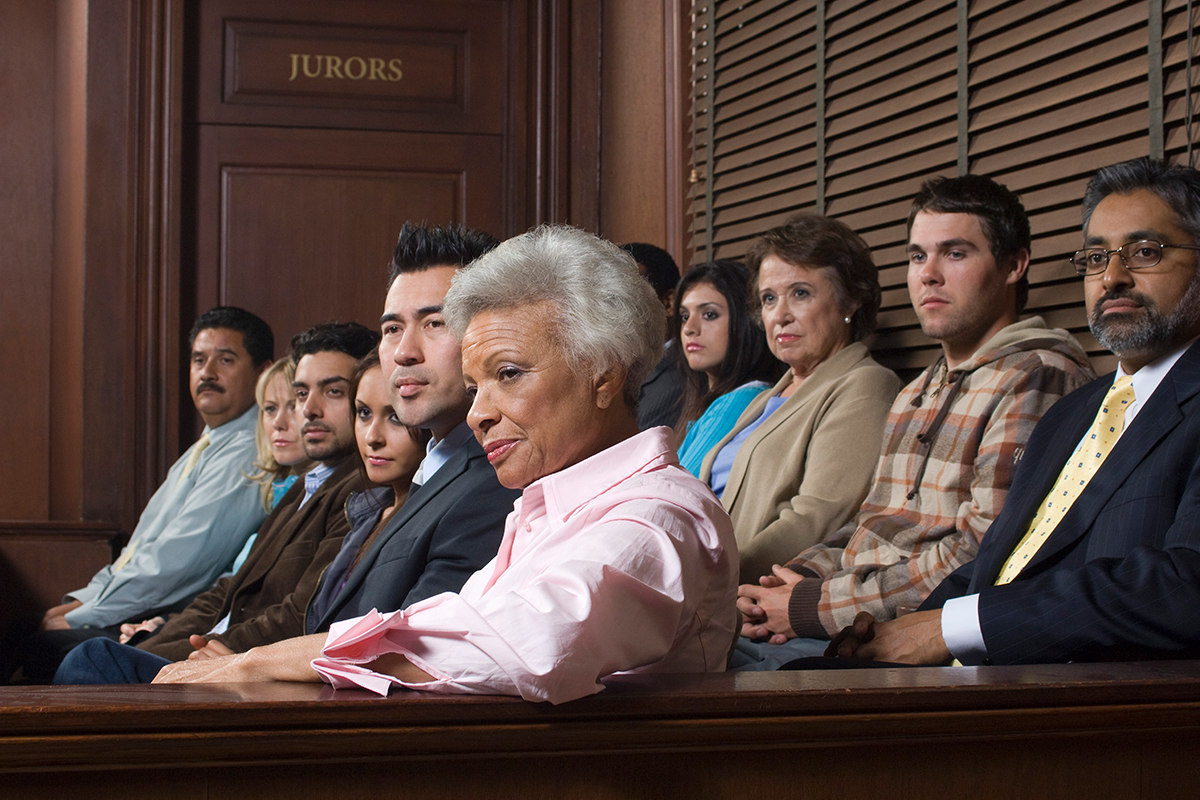If you are facing intimidation of a justice system participant charges, you need a criminal defence lawyer in Calgary to look at your case as soon as possible.
An intimidation of a justice system participant offence is when you use violence, threats, or other criminal means to intimidate a justice system participant to stop them from doing their job. Justice system participants include judges, lawyers, jurors, witnesses, journalists, and many others involved in the administration of justice.
For example, threatening a witness to prevent them from testifying, intimidating a judge about a ruling, or following a prosecutor home to frighten them would all fall under this offence.
Intimidation of a justice system participant is an indictable offence only, meaning it’s treated as a serious crime with no option for the Crown to proceed by summary conviction.
The punishment for this offence is severe, it carries a maximum penalty of 14 years imprisonment.
Strategic Criminal Defence is a top Google-rated criminal defence firm in Calgary, with over 500 5-star reviews. Our firm, and our experienced legal team, have defended clients in over 10,000 criminal cases. Leveraging our extensive network of lawyers and decades of experience, we craft defence strategies to help those accused of intimidation of a justice system participant beat the charge.
The lawyers at Strategic Criminal Defence are both highly experienced and dedicated to defending your rights and future in the face of these charges. Contact a a lawyer today by calling (403) 719-6410.
Key Takeaways
- Intimidation of a justice system participant is when someone uses violence, threats, or other criminal acts to intimidate people who work in or help the justice system.
- Judges, lawyers, police officers, jurors, witnesses, journalists, and other people who work in the justice system are all protected under this law.
- The longest possible prison sentence for this offence is 14 years.
- Most of the time, the rules for bail are very strict. You will not be able to talk to the victim, go to court when not required to. You may also not
- A strong defence could say that the person didn’t mean to scare anyone, that they were confused with someone else, or that their Charter rights were broken during the investigation.
- Someone who is found guilty for the first time and has strong ties to the community might not get as severe a punishment.
How Our Lawyers Help With an Intimidation of a Justice System Participant Charge
We can help you with legal advice even if you haven’t been charged yet.
- This will help you decide if what you did really counts as intimidation under the law or if it might be protected as free speech.
- Our lawyers can help you avoid getting into trouble by making sure you don’t say anything that could be seen as a threat or an admission of intimidation.
It’s very important to collect evidence in these kinds of situations.
- Our lawyers can get copies of conversations, security footage, or witness statements that might show that what you did was possibly not intimidation, or maybe taken out of context.
It’s hard to understand these cases and their serious consequences. Our lawyers will handle the law for you. We might even be able to reach an agreement that protects your rights without you having to go to court. If your case goes to court, our team will represent you effectively.
Examples of Intimidation of a Justice System Participant Charges
Here are some real-life situations in Calgary that could lead to Intimidation of a Justice System Participant charges:
- The defendant’s brother sent threatening texts to a man who had been asked to testify in a drug trafficking case. The messages said, “If you go to court next week, your family won’t be safe.” This is a direct threat that led to charges of threatening someone who was involved in the justice system.
- The suspect called a friend after being arrested and told him to “pay a visit” to the officer’s house to “make him rethink his testimony.” The friend was arrested when he got to the officer’s house.
- After being found guilty, a man parked outside the prosecutor’s office several times, followed her to lunch, and left notes on her car that said things like “I’ll never forget what you did”. This also led to an intimidation of a justice system participant charge.
Consequences of an Intimidation of a Justice System Participant Charge
If someone says you threatened a worker in the justice system, you could receive serious criminal charges. This crime is punished more harshly than others because it threatens the foundation of our justice system.
- The Criminal Code doesn’t have a minimum someone has to stay in jail for this crime.
- However, the maximum length you could go to jail is up to 14 years.
- A conviction also leaves a permanent criminal record, which can make it harder to get a job, especially in jobs that need a lot of security.
- People who are found guilty may be restricted from travelling, especially to the United States, which often doesn’t let people with criminal records in.
- It could also affect professional licences, and non-citizens might have to deal with immigration issues, like being sent back to their home country.
Intimidation of a Justice System Participant Charge Defences
If someone says you threatened someone who works in the justice system, you could face serious consequences that could change your life forever.
There are, however, a number of legal defences that could apply to you:
- You are guilty of intimidating someone who works in the justice system only if you meant to intimidate them so they wouldn’t do their job. You could have a defence if you didn’t mean to do this. If you were upset about a court decision on social media and didn’t mean to intimidate anyone involved, for example, this wouldn’t be considered intimidation even if you used strong language. If you called a witness many times for good reasons that had nothing to do with their testimony (like if they were a family member or business partner), this also doesn’t show the intent to intimidate that is needed.
- The Charter of Rights and Freedoms protects peaceful protests outside of courthouses and government buildings, even if they make people who work in the justice system uncomfortable. Showing that what you did was legal, followed the rules, or made sense given the situation can help your case.
- The Crown must show that what you did would intimidate the participant, not just annoy or upset them. A strongly worded letter that criticizes a judge’s decision but doesn’t threaten them, for instance, might make them uncomfortable but not intimidated. If you saw a prosecutor in public and told them you didn’t agree with how they handled a case, but you didn’t make threats or act aggressively, that likely wouldn’t intimidated them.
Intimidation of a Justice System Participant Charge Investigation
The first thing that usually happens in an investigation is that the person who is involved in the justice system tells the police about the threats they were getting.
- Officers investigate what happened, when and where it happened, and why the person thinks it was meant to intimidate them.
- After that, the police collect all the proof they can find of the threatening behaviour. This could mean collecting any threatening letters, phone calls, and taking screenshots of social media posts, or getting video of them.
- In these cases, digital evidence is very important. Investigators often get search warrants to look through email accounts, social media accounts, or electronic devices. They could ask tech experts to help them find out who sent the messages and what devices were used to make the threats.
Bail Conditions for Intimidation of a Justice System Participant Charges
If you are accused of threatening someone who works in the Canadian justice system, you will likely have to follow very strict bail conditions while you wait for your trial.
- The most important thing about your bail will be that you can’t talk to the person you are accused of threatening in the justice system. You can’t talk to them at all, not in person, on the phone, by email, on social media, or through someone else. The no-contact order usually also applies to the participant’s close friends and family.
- You will almost certainly be told to stay away from places where the person in the justice system lives, works, or goes a lot. This could include some police stations, courthouses, law offices, or government buildings.
- You will usually have to check in with a police station or bail supervisor on a regular basis, sometimes as often as three times a week. This helps the police make sure you’re not breaking the rules and not leaving the area.
- The court might also tell you to give up your passport so you can’t leave the country. They might also set a curfew that says you have to be home during certain hours, usually from evening to morning.
- You might have to wear an ankle bracelet that lets the police see where you are going if you are a serious threat.
- If you break any of these bail conditions, you will be charged with a new crime and your bail will be revoked. You will have to stay in custody until your trial is over.
For additional insights on common legal questions and further clarifications regarding such charges, feel free to explore our Frequently Asked Questions page.
For more information, visit our page on The Bail Hearing Process in Calgary.








